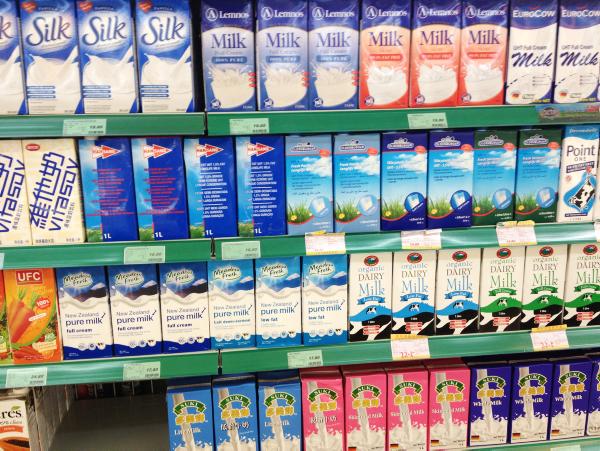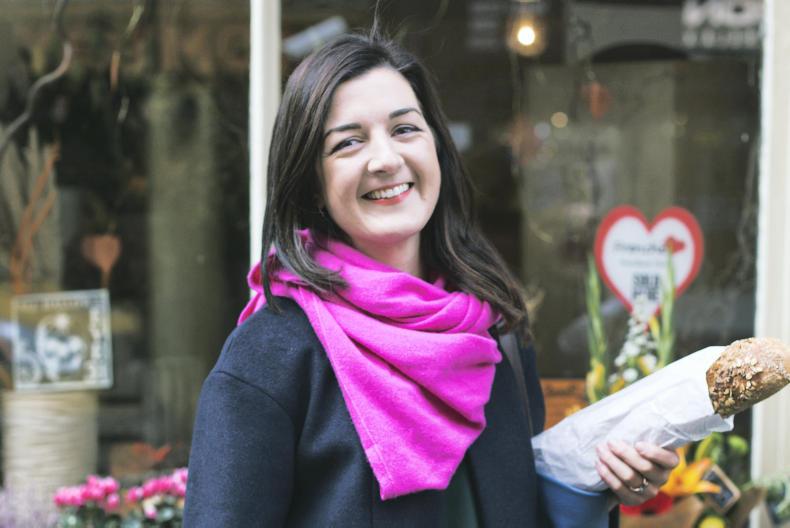Milk is liquid gold, milk is magic. These are the words that radiated from the stage at the Walsh family farm in Ballylooby, Cahir, Co Tipperary last week. Winners of the 2017 NDC & Kerrygold Quality Milk Awards, the Walsh family were not only hosting a farm walk but a seminar on Dairy and the Modern Consumer, with speakers that included food writer and commentator John McKenna, Ciara O’Callaghan, brand director of Ornua and Dr Marianne Walsh, senior nutritionist with the NDC.
Are we preaching to the converted, however? Many readers of Irish Country Living know the value of Irish milk and certainly many of those who attended the Tipperary dairy farm are well aware of its importance. “That’s not enough, though,” says John McKenna. “We all need to be more vocal about it because milk, and consumers face serious challenges.”
Spreading the Message
John pulls out a copy of The Happy Pear cookbook, where the focus is on vegan recipes. “In Ireland, if a cookbook gets sales of 10,000, it is considered to sell very well. This cookbook has sold 110,000 copies. I know of a friend in a house share in Dublin where three people in the house have this book, three copies in one house.
“However, if you look in the index, you won’t find any mention of dairy. These guys are having more impact on lifestyle than anybody else in Ireland, and they don’t use dairy whatsoever.”
In the next breath, he pulls out a copy of one of the newest cookbooks to hit the market from Shells Café in Sligo. “Shells Café is a wonderful café. In this cookbook, however, there is a section on stocking your larder, under which there is a section of ‘dairy alternatives’, stating they are beneficial to the environment and your health. It states: ‘There has been a huge surge in milk alternatives and not just with plant-based eaters. Their main benefits are zero cholesterol and a low calorie content. In contrast to dairy-based milks, there is no use of antibiotics or hormones in the making of these products.’
“Now, I didn’t think we lived in Tennessee or California, where antibiotics are used. This may be the case in America – but not in Ireland. We have to continue to get the correct message out there about the health benefits of milk.”
Milk Marketing
Not only that, looking beyond the farmgate, how can we market Irish milk even better? John says: “In every aspect of the drinks industry now, we have enormous fragmentation. When my father ran a bar in Belfast in the 1960s and 1970s, we didn’t ask anybody what they wanted to drink, we didn’t need to. Everybody drank the same drink every night.
“If somebody did order a gin and tonic, the only question you might ask was did they want Cork Dry Gin or Gordons? Now you practically need a PhD to order a gin and tonic, as does the barman. What the drinks shelves prove is that people want choice, that fragmentation is the order of the day.
“Let’s take that even further, and travel to the town of Chablis in France. If you go for a nice lunch in Chablis, Chablis white wine will be on the menu. Of course it will be. However, they will also have Petit Chablis, which is from just outside the town, as well as a series of Premier and Grand Cru Chablis. So if wanted a glass of local wine, that option is there, but if you’re on holidays and want to experience the best of the area, you would have the choice to order something more high-end and expensive.
“Irish milk is premium quality, it’s amongst the best in the world. We should have this type of choice. Commodity prices keep going down, while niche products are going up. In the future, we should have east-coast milk, west-coast milk, milk from the north, and south with subdivisions within that.
“The Germans have this system, which they call Vorzugsmilch – merit milk. So the best milk farmers get the higher price. They get rewarded and that milk is premium.
“It has only got a shelf life of four days. It is designed as an optimum product, and I don’t see why Irish milk cannot be sold the world over as premium. Let’s stop selling it as run of the mill red and white wine, let’s sell the champagne of milk.” CL
>> Consumer news: flight rights
As of the time of going to print, Ryanair strikes were scheduled for 12 July, with more predicted in the coming weeks. If you have been caught in the crossfire, here is a Q&A on your consumer rights.
I am due to fly out on my holidays on Thursday. If my flight gets cancelled, what rights do I have?
The good news is that, under EU Regulation 261, the airline must offer you either a full refund, a re-routing of the next available flight or a flight at a later date, to avoid your being left out of pocket. You need to be aware that if you opt for a full refund there and then, that’s where the airline’s obligation to you ends. You can’t look for money to compensate the price of a more expensive flight, for example. If you choose to opt for a later flight, they do have a duty of care, for example meals and accommodation while you wait.
I could be out a lot of money for my hotel if my flight gets cancelled. Can I get compensation?
There are certain circumstances when compensation is not payable. For example, if you have been offered an alternative flight within a two- to four-hour window of your original flight. If you are entitled to compensation, however, it depends on the length of your flight. For example, if your flight is less than 1,500km in distance, you will receive up to €250. Anything over 3,500km, you could receive up to €600. Of course, this isn’t enough to cover the cost of a holiday, so it is always advisable to take out travel insurance as soon as you book your holiday and these strike announcements are made.
What if I decide to go on an alternative flight, but then have an issue getting home?
Again, the airline should provide duty of care, but if there are any issues, ensure you keep all receipts so you can claim at a later date. Afterwards, submit your claim directly to the airline, using copies of receipts. Also include your booking reference, all passenger names and the flight details. This isn’t as straightforward. However, in some situations, you may be entitled to compensation.









SHARING OPTIONS